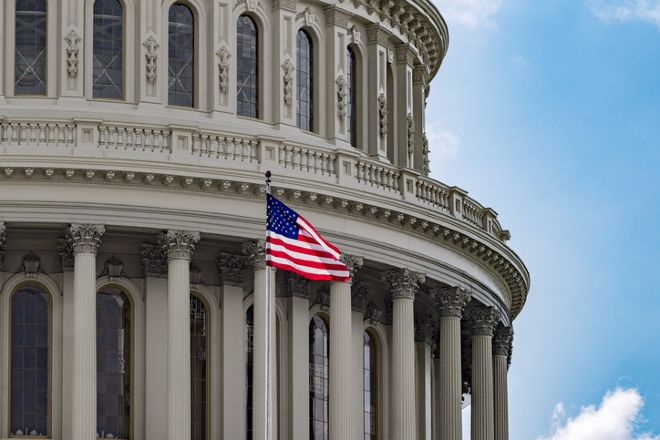For example, under the reconciled bill, school employees who currently benefit from the tuition remission tax exemption would likely lose that benefit, yet remain ineligible for a tax cut large enough to cover the loss. “What we can hope is that the final proposed legislation is kinder to exempt organizations, and more specifically, preserves the education incentives that independent schools heavily rely on for employee compensation and benefits,” wrote Jennifer Osland Hillen, NBOA’s interim director, professional development and director, accounting and tax programs, in a post on NBOA Connect.
The chart below, courtesy of Inside Higher Ed, summarizes major differences between the House and Senate bills as of November 30. Some provisions, such as graduate student tuition, affect only higher education, not K-12 independent schools. The chart excludes other provisions, including a last-minute amendment to the Senate bill that would extend 529-type tax-free tuition savings for K-12 education.
NBOA and NAIS urge schools to contact Congress to discuss their concerns. NBOA will continue to update NetAssets.org on the GOP tax legislation as we learn more. For further questions or comments, NBOA members are encouraged to contact Jennifer Osland Hillen at jennifer.hillen@nboa.org.
|
Tax Reform for Higher Education
|
|
Education Tax Benefits |
House Plan |
Senate Plan |
American Opportunity Tax Credit |
Consolidates AOTC and Lifetime Learning Credit and adds a fifth year with half the benefits. Repeal of Lifetime Learning Credit would mean no tax credit for part-time students. |
No changes to AOTC |
Discharge of student debt |
Discharge of student debt from death or disability would be excluded from taxable income. |
No change |
Student Loan Interest Deduction |
Repeals tax deduction for interest paid on federal student loans. Under current law, borrowers can deduct up to $2,500. |
Not included |
Graduate student tuition |
Eliminates Section 117(d)5 of tax code, which allows institutions to waive or reduce tuition costs for graduate students without tax implications. |
No change |
College employee dependent benefits |
Would no longer exclude tuition benefits for college employees' spouses or children from taxable income. |
No change |
Employer-provided education assistance |
Would no longer exclude employer-provided education assistance from taxable income. Tax-exempt benefits are currently capped at $5,250 per year for undergraduate and graduate course work. |
No change |
Endowment Tax |
Applies a 1.4 percent excise tax to private college endowments valued at $250,000 per full-time student. |
Same as the House plan |
Charitable Contributions |
|
|
Charitable deductions |
Increases standard deduction from $12,700 to $24,000 for joint filers and from $6,350 to $12,000 for individuals. Charitable groups say the change will reduce the incentive for charitable giving to entities like colleges. |
Increases standard deduction to $24,400 for joint filers and $12,200 for individuals. |
College athletic seating rights |
Eliminates rule providing for charitable deduction of 80 percent of amount paid to purchase tickets to athletic events. |
Same as House plan |
Unrelated Business Income Tax |
|
|
Research income |
Tax-exempt organizations could exclude from unrelated business tax only income from research that is available to the public. |
Not included |
Name and logo royalties |
Not included |
Would tax royalties a college derives from licensing its name or logo. |
Business income taxed separately |
Not included |
Requires that unrelated business income be counted separately for tax purposes, meaning colleges could no longer use losses in one business area to offset tax liability for gains in another. |
Tax-Exempt Bonds |
|
|
Termination of private activity bonds |
Effectively eliminates tax-exempt private activity bonds that lower the cost of building for colleges. |
Not included |
Termination of advanced refunding bonds |
Interest on newly issued advance refunding bonds would become taxable. |
Same as the House plan |
State and Local Tax Deductions |
Deductions for state and local property taxes would be capped at $10,000. Higher ed advocates say limiting the deductions will mean less support for taxes that support community colleges and public universities. |
Eliminates deduction entirely. |
gg



